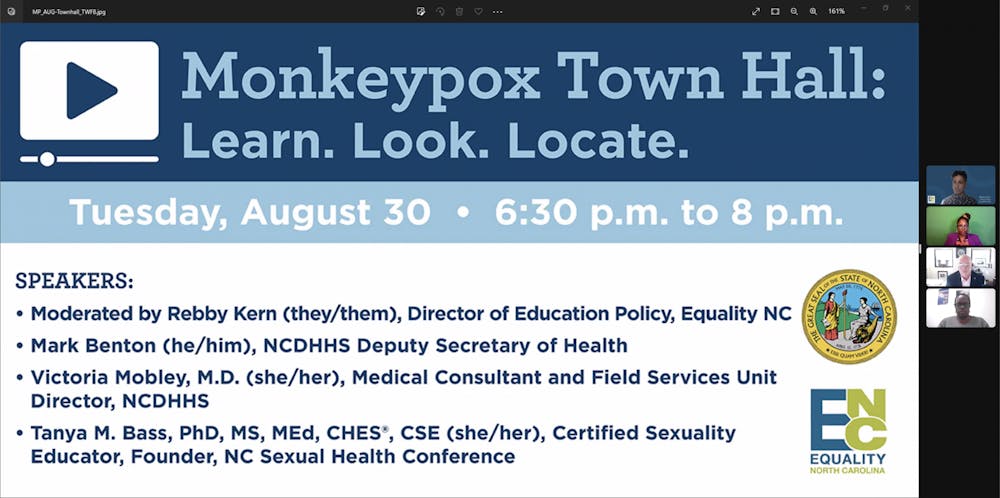“That's an acknowledgment that we are catching up to the prevalence of monkeypox in our population,” she said. “So with testing, with vaccines, we're actually able to meet the outbreak at this time.”
Monkeypox is transmitted through close personal or skin-to-skin contact with someone who has a monkeypox rash. Mobley advised people to not look for typical symptoms, but talk to their doctor about anything unusual, including rashes, painful swallowing or bowel movements.
Bass said people should be mindful of being in close contact with others, especially at gatherings, clubs and in the heat — when skin is more likely to be exposed.
Mobley noted other methods of transmission including respiratory droplets, the sheets or linens of an infected person and sexual activities.
“There are multiple ways it can be transmitted but we absolutely know that at this time it is being transmitted through activities that occur during sex,” she said.
Mobley said that debates about whether monkeypox is a sexually transmitted infection are still ongoing. She said the virus has been isolated in multiple bodily fluids including those typically associated with sexual transmission but it is unclear whether that material is infectious.
"We don't want folks in a state of panic, but we want people to be concerned about their health, and the health of others in general, while also being able to pay special attention to communities that are most impacted,” Bass said.
She said she and her colleagues are working to reduce stigma surrounding monkeypox because of its association with sex.
Benton said there is ample access to monkeypox testing, which can be done with primary care doctors, local clinics or county health departments. He said access to vaccines has not been as ample, but supplies are increasing.
“In just the last few days we have received just over 18,000 new doses of the monkeypox vaccine,” Benton said.
Mobley said the Centers for Disease Control and Prevention and U.S. Food and Drug Administration have provided guidance on how to make the supply of the vaccine last longer.
Initially in North Carolina, one vial of the vaccine was used per patient and delivered subcutaneously. Now, a fifth of the vial can be used per person if the vaccine is delivered intradermally.
To get the day's news and headlines in your inbox each morning, sign up for our email newsletters.
She said this method will leave a small bubble under the skin and may be associated with more redness or swelling of the arm.
Patients are not fully immune until two weeks after their second dose, according to Mobley.
According to an email statement from Ken Pittman, executive director of Campus Health at UNC, monkeypox testing is available at Campus Health. Need for testing is determined based on symptoms and potential exposure. Results are available in two to three business days.
Vaccines are also in supply at Campus Health for people with known or suspected exposure to monkeypox — as well as men who have sex with men or transgender individuals who report having multiple or anonymous sex partners, diagnosis with a sexually transmitted infection, or are receiving HIV pre-exposure prophylaxis (PrEP).
Doses are dependent upon weekly allocations from the Orange County Health Department and NCDHHS.
@msingleton42
@DTHCityState | city@dailytarheel.com



